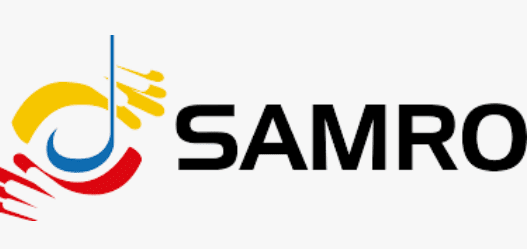In a landmark moment for South Africa’s creative industry, artists, musicians, and cultural workers staged a powerful and unprecedented uprising at the Southern African Music Rights Organisation (SAMRO)’s Extraordinary General Meeting (EGM), resulting in the immediate removal of three board members.
The board members in question are said to have represented major international music corporations. The name of these corporations are known to Sunday World but cannot be published due to legal reasons.
Allegations of mismanagement
Their removal comes after years of frustration and growing allegations of mismanagement, collusion, and exploitation within SAMRO, which is responsible for protecting artists’ rights and administering royalties.
This dramatic turn of events follows mounting pressure from artists who have long accused SAMRO of failing to fairly distribute royalties.
Many alleged they were consistently underpaid, with some receiving no payments at all.
These grievances culminated in loud calls for the release of a forensic investigation report commissioned after allegations emerged that a SAMRO employee was colluding with publishers to exploit artists, particularly around undocumented or misattributed works.
Although the artists succeeded in unseating the implicated board members, they were unsuccessful in forcing SAMRO to release the full forensic report, an issue that remains a major point of contention.
Sunday World has seen the report, which reveals that SAMRO disbursed approximately R61,985,176.71 between 2020 and 2022 to a group of 61 publishers, authors, composers, and artists.
Disproportionate benefits
Many artists believe this sum disproportionately benefited major publishers. This raised serious questions about SAMRO’s internal policies, transparency, and royalty distribution model.
Nomsa Mazwai, a vocal advocate for artists’ rights and one of the key participants at the EGM, said: “For decades, local artists have been side-lined. Even when royalties were paid, they were often minuscule. Many legends died destitute while their creative work enriched others, usually publishers who claimed ownership under ‘undocumented works’.
“We discovered that a SAMRO staff member was working in collusion with some publishers. This prompted our call for a forensic probe.
“The investigation, we were told, implicated a number of board members. We’ve asked repeatedly for the report to be released, but SAMRO has refused. So yesterday, the members took matters into their own hands. We voted to remove the implicated board members. It was not personal. It was necessary.”
Artists demand reform
Mazwai added that artists are not against SAMRO or its purpose, but are demanding reform.
“We want SAMRO to function just not under a cloud of secrecy and corruption. We’re not blocking royalty collection, but we demand a seat at the table. As members, we have a right to transparency, accountability, and involvement in decision-making.”
Gallo Music’s CEO, Antos Stella, distanced the label from recent events.
“While Gallo is a member of SAMRO, we have not had board representation for some time. We’re not in a position to comment directly but are very concerned about the allegations and are working to gather facts.”
Sony Music also denied any board presence. Ursula de Beer from the label stated: “There is no representative from Sony Music on the SAMRO board. We cannot comment on events we were not involved in.”
Universal Music Publishing
Sunday World sent an inquiry to Universal Music Publishing regarding their alleged board involvement and the status of the forensic report. At the time of publishing, they had not responded. Their response will be included in the story once received.
This historic move by SAMRO members marks a possible turning point for the South African music industry. It not only reflects a rising demand for justice and equity, but also signals a shift in power. A shift from institutions and corporations back into the hands of the creators themselves.
SAMRO clarifies matter
“Following extensive deliberation, a number of members expressed dissatisfaction with the presence of certain directors who were associated with companies named in the forensic
report,” said SAMRO.
“Despite the company secretary guidance that the removal of directors must comply
with due process as set out in Section 71 of the Companies Act and the SAMRO Memorandum of Incorporation (MOI), members proceeded with a vote from the floor.
“A resolution was declared from the floor to remove three publisher representatives from the Board with immediate effect.”



